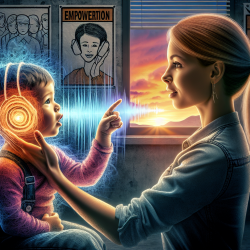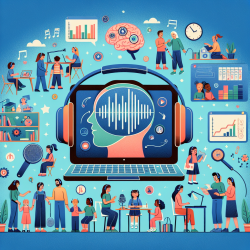Introduction
In the field of speech-language pathology, understanding the factors that influence early language acquisition is crucial for developing effective interventions. Recent research has shed light on the potential impact of maternal occupational noise exposure during pregnancy on children's language development. This blog delves into the findings of a study published in PLoS One, which investigates this relationship and offers insights for practitioners.
The Study: An Overview
The study titled "Maternal occupational noise exposure during pregnancy and children’s early language acquisition" examined the effects of noise exposure on language development in children at the age of one. Conducted among 408 mother-child pairs, the research assessed noise exposure levels in various occupational settings, including the food industry, kindergartens, and dental clinics.
Key Findings
- Overall, no significant association was found between maternal noise exposure and language acquisition in children.
- However, children of kindergarten teachers exposed to human noise showed lower language acquisition scores.
- The study suggests that while general occupational noise may not impact language development, specific types of noise, such as human noise, could have an effect.
Implications for Practitioners
For speech-language pathologists and educators, these findings underscore the importance of considering environmental factors in early language development. Practitioners can enhance their practice by:
- Being aware of the potential impact of noise exposure on language development, particularly in settings with high levels of human noise.
- Encouraging environments that minimize unnecessary noise exposure during pregnancy.
- Incorporating strategies to support language development in children who may have been exposed to high levels of noise prenatally.
Encouraging Further Research
While this study provides valuable insights, it also highlights the need for further research. Future studies could explore:
- The impact of different types of noise exposure on various aspects of language development.
- Longitudinal effects of prenatal noise exposure on language and cognitive outcomes.
- Interventions that could mitigate any potential negative impacts of noise exposure.
Conclusion
The relationship between maternal noise exposure and early language acquisition is complex and warrants further exploration. By staying informed and incorporating these findings into practice, speech-language pathologists can contribute to better outcomes for children. For those interested in a deeper dive into the research, I encourage you to read the original paper: Maternal occupational noise exposure during pregnancy and children’s early language acquisition.










